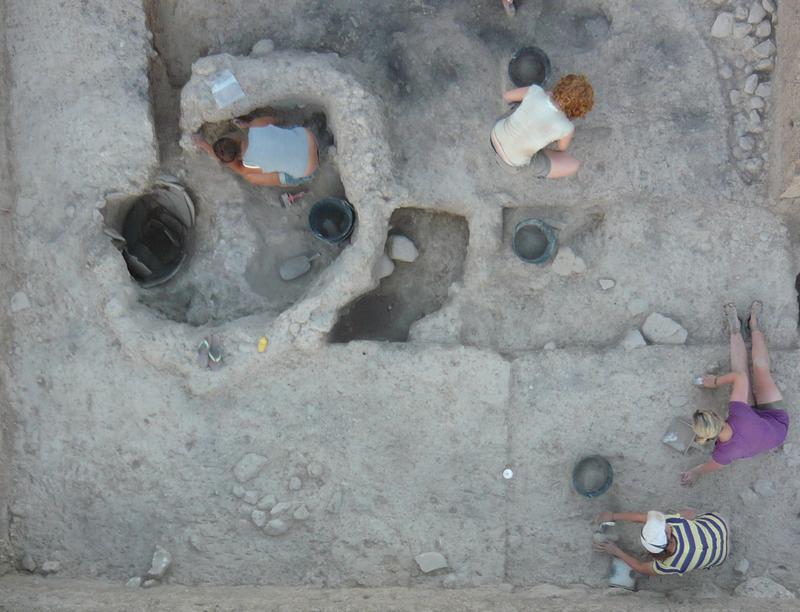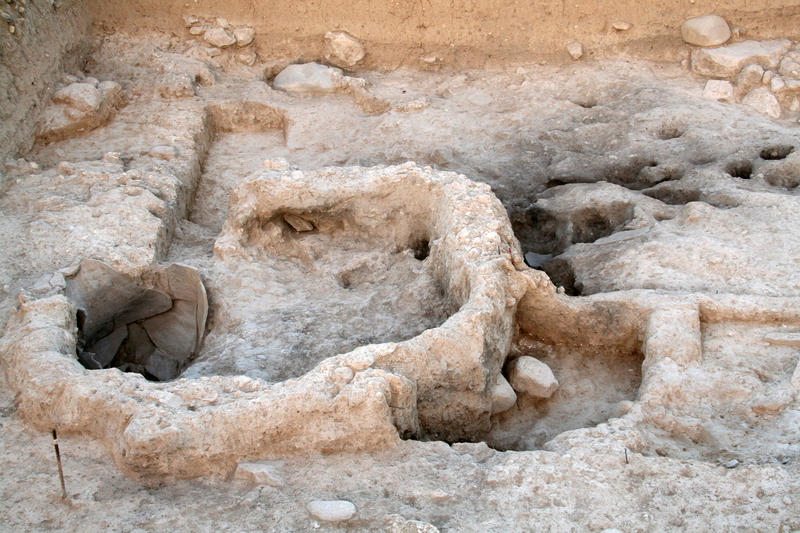Fieldwork
This listing expired on December 31, 2024. Please contact info@harparchaeology.co.uk for any updated information.




Location: Kissonerga, CY
Season: June 22, 2024 to July 20, 2024
Session Dates: June 22nd to July 20th
Application Deadline: March 31, 2024
Deadline Type: Rolling
Website: http://www.harparchaeology.co.uk/field-schools/kissonerga-skalia-excavation
Program Type:
Field School
RPA Certified:
No
Affiliation:
Heritage and Archaeological Research Practice (HARP)
Project Director:
Lindy Crewe, Ian Hill
Project Description:
Kissonerga-Skalia Excavation 2024
June 22nd to July 20th 2024
Email: ian@harparchaeology.co.uk
The Cyprus American Archaeological Research Institute (CAARI) together with HARP will be running a four-week excavation field school from Saturday 22nd June to Saturday 24th July at the site of Kissonerga-Skalia in southwestern Cyprus. Places are available to attend for 4 weeks (shorter periods of attendance for exceptional circumstances will be considered, please contact us to discuss further).
This field school is intended for those who have no prior experience with archaeological excavations, as full training will be provided, but we also gladly welcome those who have previous archaeological experience and are looking to increase their skill set and broaden their excavation experience.
Dr. Lindy Crewe, Director of CAARI, has been conducting excavations at Kissonerga-Skalia since 2007. Our ongoing work has revealed a settlement that was continuously occupied from at least the beginning of the Early Bronze Age (ca. 2500 BC) into the start of the Late Bronze Age (ca. 1600 BC). Located in the western coastal plain of the island of Cyprus, the site lies only 300 meters from the Mediterranean Sea. Archaeological remains at Skalia consist primarily of multiple super-imposed phases of rectilinear architecture, with a pre-Bronze Age component, and a final phase of large-scale architecture. During the final phase, at the transition to the Late Bronze Age, a significant building complex with evidence for domestic and industrial activities, including beer production, was constructed. Our objective will be to continue to expose this complex and understand the nature of the final occupation before the site was abandoned.
In addition to the preserved architecture, finds from the excavations include beads, pendants and copper fragments; evidence of textile production in the form of spindle whorls and loom weights; and a number of chipped stone and ground stone tools, including agricultural types such as querns. The site has also yielded evidence of faunal (cattle, deer, sheep/goat, pig) and marine (crab and shellfish) exploitation, and has uncovered well-preserved botanical remains including grape and lentil.
Eighteen places are available to take part in the excavation field school, which aims to provide students with a hands-on experience of working on an archaeological excavation, and all participants will learn how to excavate to a professional archaeological standard, as well as how to record the remains by completing context sheets, technical drawing, photography and surveying. Students will also have the opportunity to work with various artefact material types including pottery, chipped stone, and human skeletal material during post-excavation. We will use Cyprus as a case study to discuss aspects of the archaeological understanding of the Bronze Age in the Mediterranean.
This course will include:
• Archaeological excavation using the single context recording system
• Site recording including technical drawing, context recording and photography
• Artefact processing including handling, cleaning and storage
• Basic site surveying
• Field trips to local archaeological sites
• Expert lectures by specialists
• Extra-curricular opportunities for further skills development
A further three places are available for a specialist Pottery Analysis field school, where participants will learn how to identify, analyse and record prehistoric Cypriot pottery, principally from the Chalcolithic and Bronze Age periods. This is primarily an artefact field school, but participants will attend all curricular field trips and specialist talks provided on the excavation field school.
The field school fees include training, accommodation (details below), meals on work days, transport costs on field trips, and we’ll wind up the course with a traditional BBQ. Field school fees do not include flights, or transfers within Cyprus. Airport Transfers by local taxi (to be paid by participant) can be arranged if required and requested.
The course is based around the village of Kissonerga, which is located 8km from the centre of Paphos. It is a lively village, with a long history and prehistory, with several bars, restaurants, and shops, and is only a short walk to the local beach.
Cost
The cost and dates for the excavation are outlined below and include full training on all aspects listed above, transport for all site visits, and meals on workdays. Flights are not included. A non-refundable 25% deposit is required within two weeks of being offered a place on the field school in order to secure it.
Application
There is no application deadline. Places are limited and are given on a first come first served basis. To apply for a place please contact Ian to request an application form at ian@harparchaeology.co.uk
Please note, that the excavation takes place during the summer months in the eastern Mediterranean, which can be exceptionally hot and humid. There is only minimal shade available on site with all excavation taking place in direct sunlight. We do our best to mitigate for the worst of the heat by beginning the work day as early as possible, but if you are sun sensitive, or on medication that may be affected by sun exposure, please check carefully with a doctor before signing up for this field school. We can provide some alternatives to help manage sun exposure, but only if we know PRIOR to the excavation about any issues with the sun and heat. Temperatures will typically be between 28-35 degrees Celsius, plus 60–85% humidity. We want to make sure that everyone has a positive excavation experience, so we encourage you to explore the conditions and ensure that this project is suitable for you.
Covid-19: Safe working practices will be maintained and all local regulations and restrictions regarding Covid-19 will be followed. It is essential that all participants follow all requirements that are in place at the time of the field school regarding travel and testing (at both departure and destination points). As the field school involves communal/group living in a small village community, it is a requirement of acceptance on the field school that you are fully vaccinated against Covid-19. Proof of vaccination status may be requested. If for unforeseen reasons the field school is not able to take place as a result of Covid-19, participants will automatically be transferred onto the same field school at a later (rescheduled) date. If this is not possible, participants will have the opportunity to transfer their fees onto a different programme, or will be able to secure a 75% refund of their fees (the remaining 25% being the non-refundable deposit). Full terms and conditions for HARP field schools can be found at https://www.harparchaeology.co.uk/field-schools/field-school-terms-and-conditions.
Period(s) of Occupation: Bronze Age
Notes:
Excavation Field School; Pottery Analysis Field School
Project Size: 1-24 participants
Minimum Length of Stay for Volunteers: 4 weeks
Minimum Age: 18
Experience Required: No experience necessary, all welcome
Room and Board Arrangements:
During the field school, the team stays at the local village school where dormitory-style accommodation is provided. Facilities include a toilet and shower block with hot running water and a kitchen for preparing meals. Meals are prepared communally on all working days, by staff and participants. The school is a short five-minute stroll away from a local supermarket, bars and restaurants. It is also only a ten-minute walk from the local beach and coastal road, which has bars, restaurants and mini-markets. Camp beds or mattresses will be provided but participants will need to bring their own bedding/sleeping bags. Due to the hot weather, sleeping outdoors is possible. A full list of suggested items to bring will be sent out upon receipt of a deposit for your place on the course.
Cost:
• 4-Week Block (Saturday 22nd June to Saturday 20th July) ¬ £995 (GBP) (21 places available)
Academic Credit:
No formal credit is available but each participant will have the opportunity to complete a training manual and portfolio. For an extra fee of £40 (GBP), participants will be provided with extra training sessions, and a training manual and portfolio that they will fill in during the course of the excavation to take away with them. Individuals completing an Archaeological Skills Passport will have relevant sections checked off.
Ian Hill
H.A.R.P, 5 South Charlotte Street
Edinburgh
EH2 4AN
UK
Phone: +44 (0)3339209495
The AIA is North America's largest and oldest nonprofit organization dedicated to archaeology. The Institute advances awareness, education, fieldwork, preservation, publication, and research of archaeological sites and cultural heritage throughout the world. Your contribution makes a difference.
Notifications